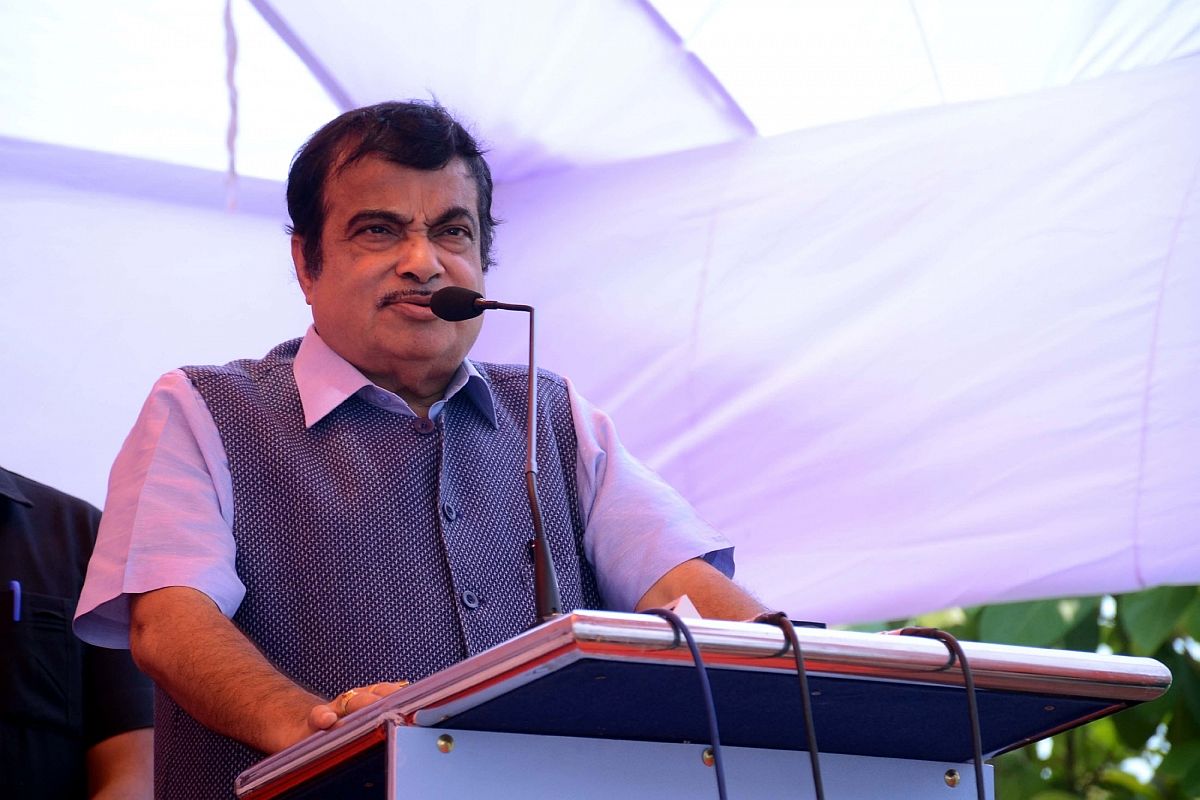Heritage bookstore in College St set to open new outlet
Dasgupta, the well-known heritage bookstore in the city, is going to open its outlet in south Kolkata on 1 May.
Just as long-distance trains are the lifeline of the nation, hundreds of thousands of students, office goers, and daily wage-earners are entirely dependent on the local train for the daily commute.

Union Minister Nitin Gadkari. (File Photo: IANS)
After a closure of close to two months ~ normally inconceivable in any metropolis ~ there may be hope yet for urban transportation with the Union road transport minister indicating the resumption very shortly.
Nitin Gadkari is yet to spell out the time-frame, but beyond his statement of intent must lie the critical contretemps for the governments at the Centre and in the states, the private bus operators most particularly in Kolkata where such buses play a pivotal role in such conveyance, and the commuters in the wider canvas.
Chief among the problems must be the dire imperative to ensure social distancing even if every bus is permitted to carry up to 50 passengers.
Advertisement
This is easier proposed than accomplished in a moving vehicle that runs from one end of the city to another, let alone the reckless jerks en route. An equal number of passengers has no option but to stand and travel.
The initial plan to allow barely 20 commuters to board the vehicle in green zones was jettisoned at the threshold. The luxury is unaffordable. The next major challenge, one that is no less forbidding, is to ensure the economic viability of running private buses with a drastically reduced number of passengers. Since the morning of 25 March, there has been no income for the owners/operators, drivers and conductors.
“It is a tough task to balance earnings, provide service, and ensure safety”, was Mr Gadkari’s prognosis at Wednesday’s meeting with the Bus and Car Operators Confederation of India, notably attended by a World Bank representative.
To put it charitably, the blueprint for normalised service ought to have been tentatively formulated over the past six weeks. The migrant, who had to walk the miles between one state and another, was the worst sufferer.
The minister’s presentation suggests that there can be no rough-and-ready formula to bring the buses back on the road with their normal load of commuters. The Ministry of Railways is equally clueless about when passenger trains (long-distance and suburban), and the Metro will resume operations.
Just as long-distance trains are the lifeline of the nation, hundreds of thousands of students, office goers, and daily wage-earners are entirely dependent on the local train for the daily commute.
In Kolkata, Delhi and Chennai for instance, the Metro is the lifeline of urban transportation. Granted that train services do not come within Mr Gadkari’s ambit, the country does expect the Railway minister, Mr Piyush Goyal, to take a call on the overwhelming inconvenience. Train services have and will be impeded by the anxiety to ensure social distancing, quite the most acutely inside the air-conditioned rakes of the Metro.
The suggestion advanced by the transport specialist of the World Bank, Gerald Ollivier, calls for reflection ~ specifically, a globalisation fund for the transport sector by leveraging the sharp drop in crude prices.
The compulsions of health will have to be blended with sound economics. No easy task. The route will choose its traverser, not the traveller his road.
Advertisement